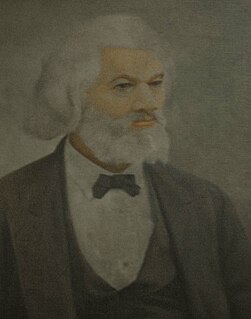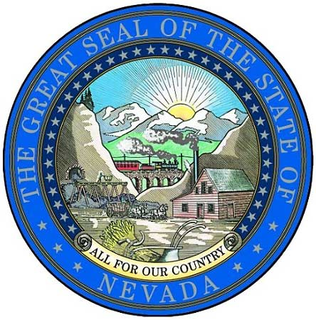Related Research Articles
Copyright is a type of intellectual property that gives its owner the exclusive right to make copies of a creative work, usually for a limited time. The creative work may be in a literary, artistic, educational, or musical form. Copyright is intended to protect the original expression of an idea in the form of a creative work, but not the idea itself. A copyright is subject to limitations based on public interest considerations, such as the fair use doctrine in the United States.

Intestacy is the condition of the estate of a person who dies without having in force a valid will or other binding declaration. Alternatively this may also apply where a will or declaration has been made, but only applies to part of the estate; the remaining estate forms the "intestate estate". Intestacy law, also referred to as the law of descent and distribution, refers to the body of law that determines who is entitled to the property from the estate under the rules of inheritance.

The Uniform Commercial Code (UCC), first published in 1952, is one of a number of Uniform Acts that have been established as law with the goal of harmonizing the laws of sales and other commercial transactions across the United States through UCC adoption by all 50 states, the District of Columbia, and the Territories of the United States.
A prenuptial agreement, antenuptial agreement, or premarital agreement, is a written contract entered into by a couple prior to marriage or a civil union that enables them to select and control many of the legal rights they acquire upon marrying, and what happens when their marriage eventually ends by death or divorce. Couples enter into a written prenuptial agreement to supersede many of the default marital laws that would otherwise apply in the event of divorce, such as the laws that govern the division of property, retirement benefits, savings, and the right to seek alimony with agreed-upon terms that provide certainty and clarify their marital rights. A premarital agreement may also contain waivers of a surviving spouse's right to claim an elective share of the estate of the deceased spouse.
In law, conveyancing is the transfer of legal title of real property from one person to another, or the granting of an encumbrance such as a mortgage or a lien. A typical conveyancing transaction has two major phases: the exchange of contracts and completion.
An electronic signature, or e-signature, refers to data in electronic form, which is logically associated with other data in electronic form and which is used by the signatory to sign. This type of signature has the same legal standing as a handwritten signature as long as it adheres to the requirements of the specific regulation under which it was created.
Torrens title is a land registration and land transfer system, in which a state creates and maintains a register of land holdings, which serves as the conclusive evidence of title of the person recorded on the register as the proprietor (owner), and of all other interests recorded on the register.

Recorder of deeds or Deeds registry is a government office tasked with maintaining public records and documents, especially records relating to real estate ownership that provide persons other than the owner of a property with real rights over that property.

The Uniform Law Commission (ULC), also called the National Conference of Commissioners on Uniform State Laws, is a non-profit, American unincorporated association. Established in 1892, the ULC aims to provide U.S. states with well-researched and drafted legislation to bring clarity and stability to critical areas of statutory law across jurisdictions. The ULC promotes enactment of uniform acts in areas of state law where uniformity is desirable and practical. The ULC headquarters are in Chicago, Illinois.
The Uniform Electronic Transactions Act (UETA) is one of the several United States Uniform Acts proposed by the National Conference of Commissioners on Uniform State Laws (NCCUSL). Forty-nine states, the District of Columbia, and the U.S. Virgin Islands have adopted the UETA. Its purpose is to harmonize state laws concerning retention of paper records and the validity of electronic signatures.
Land registration generally describes systems by which matters concerning ownership, possession, or other rights in land are formally recorded to provide evidence of title, facilitate transactions, and prevent unlawful disposal. The information recorded and the protection provided by land registration varies widely by jurisdiction.
The introduction of the technology of communications created a field in which new laws must be introduced to protect and secure the privacy of telephone communications, while allowing for security and policing to occur through the recording of telephone calls. Telephone recording laws differ according to the country or region. Some of the countries and regions with differences in telephone recording laws include: Australia, Canada, Denmark, Finland, Germany, India, Italy, Ireland, Latvia, New Zealand, Poland, Romania, Sweden, Turkey, the United Kingdom, and the United States of America. Each region has differing laws including specifications in regards to recordings and the privacy of individuals on the call.
In real estate in the United States, a deed of trust or trust deed is a legal instrument which is used to create a security interest in real property wherein legal title in real property is transferred to a trustee, which holds it as security for a loan (debt) between a borrower and lender. The equitable title remains with the borrower. The borrower is referred to as the trustor, while the lender is referred to as the beneficiary.
The Uniform Environmental Covenants Act (UECA) is one of the uniform acts drafted by the National Conference of Commissioners on Uniform State Laws. The act is intended to provide clear rules for perpetual real estate interests – an environmental covenant – to regulate the use of brownfield land when real estate is transferred from one owner to another. The Uniform Law Commissioners completed the proposed act in 2003. Several states have adopted the Act.
Information technology law concerns the law of information technology, including computing and the internet. It is related to legal informatics, and governs the digital dissemination of both (digitized) information and software, information security and electronic commerce aspects and it has been described as "paper laws" for a "paperless environment". It raises specific issues of intellectual property in computing and online, contract law, privacy, freedom of expression, and jurisdiction.
The copyright law of the United States grants monopoly protection for "original works of authorship". With the stated purpose to promote art and culture, copyright law assigns a set of exclusive rights to authors: to make and sell copies of their works, to create derivative works, and to perform or display their works publicly. These exclusive rights are subject to a time limit, and generally expire 70 years after the author's death or 95 years after publication. In the United States, works published before January 1, 1926, are in the public domain.

The Secretary of State of Nevada is a statewide elected office in the State of Nevada. The secretary of state post is common to many U.S. states. In Nevada, it is a constitutional office.
Land value taxation has a long history in the United States dating back from Physiocrat influence on Thomas Jefferson and Benjamin Franklin. It is most famously associated with Henry George and his book Progress and Poverty (1879), which argued that because the supply of land is fixed and its location value is created by communities and public works, the economic rent of land is the most logical source of public revenue. and which had considerable impact on turn-of-the-century reform movements in America and elsewhere. Every single state in the United States has some form of property tax on real estate and hence, in part, a tax on land value. However, Pennsylvania in particular has seen local attempts to rely more heavily on the taxation of land value.
Mortgage Electronic Registration Systems, Inc. (MERS) is an American privately held corporation. On October 5, 2018, Intercontinental Exchange and MERS announced that ICE had acquired all of MERS. MERS is a separate and distinct corporation that serves as a nominee on mortgages after the turn of the century and is owned by holding company MERSCORP Holdings, Inc., which owns and operates an electronic registry known as the MERS system, which is designed to track servicing rights and ownership of mortgages in the United States. According to the Department of the Treasury, the Board of Governors of the Federal Reserve, The Federal Deposit Insurance Corporation and the Federal Housing Finance Agency, MERS is an agent for lenders without any reference to MERS as a principal.
The Trustee Sale Guarantee (TSG) refers to the title guarantee that is issued at the beginning of a foreclosure. TSG helps the foreclosing trustee and beneficiary through the delivery of the information required in ensuring compliance with the statutes of foreclosure stipulated by the state. Issuing the trustee sale guarantee is the start of foreclosure. It helps the lender and/or their private investment by providing information needed to ensure they follow federal law. The lender/private investor use a title company to issue the TSG, which give notice of the pending foreclosure. A Notice of Trustee's Sale notify homeowners and mortgage borrowers that their property will be sold at a trustee's sale on a specific date and at a specific location. The actual sale typically completes a non-judicial foreclosure. The highest bidder at a trustee's sale gets title to the property; if no one bids, the title to the property keeps with the foreclosing mortgage lender.
References
- 1 2 "Real Property Electronic Recording Act", Uniform Law Commission, 2014.